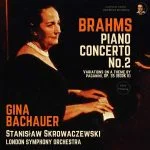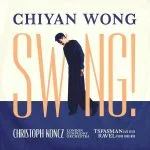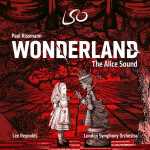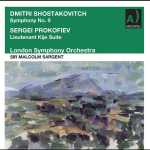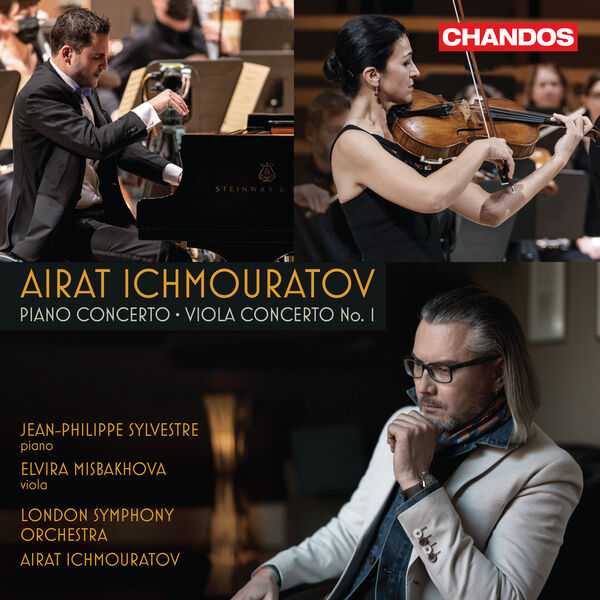

Composer: Airat Ichmouratov
Performer: Jean-Philippe Sylvestre, Elvira Misbakhova
Orchestra: London Symphony Orchestra
Conductor: Airat Ichmouratov
Format: FLAC (tracks)
Label: Chandos
Catalogue: CHSA5281
Release: 2023
Size: 1.18 GB
Recovery: +3%
Scan: yes
Piano Concerto, Op. 40
01. I. Andante affettuoso
02. II. Grave Solenne
03. III. Allegro moderato
Viola Concerto No. 1
04. I. Andante
05. II. Recitativo
06. III. Allegro – Presto
Volga-Tatar-born Canadian composer and conductor Airat Ichmouratov conducts the London Symphony Orchestra for this recording of two of his major works, Chandos’ third album dedicated to the works of this outstanding composer. Both concertos are recorded here by the soloists who premiered each work. Ichmouratov’s first viola concerto was conceived in 2004, whilst he was a conducting student at the Universite de Montreal. His fellow Ph.D. candidate, the violist Elvira Misbakhova, wanted something new for her doctoral performance, preferably a concerto that combined lyrical impulses and virtuoso challenges. The resulting work is a large-scale piece in three movements that exploits and celebrated the naturally sombre character of the instrument. The Piano Concerto was written in six months in 2012 – 13 and then lingered in a drawer for almost a decade awaiting a soloist who could both do it justice and add finishing touches to the solo part. Jean-Philippe Sylvestre, a Montrealer with a fondness for the virtuoso tradition, was himself looking for a new concerto to champion. Ichmouratov gratefully acknowledges the contributions made to the solo part by Sylvestre, the concerto’s dedicatee.
The music of Airat Ichmouratov is becoming increasingly popular, and here, he hits the big time with a recording on the major Chandos label, one which hit classical best-seller charts in the summer of 2023. He is also a klezmer clarinetist, but none of these varied strands of his background shows up much in this pair of concertos, one for viola (he wrote it for the doctoral recital of the violinist here, Elvira Misbachova, and romance flowered), and one, later, for piano. Instead, the music is late Romantic in style. What sets Ichmouratov apart from his sizable group of competitors in this area is a strongly evocative, cinematic quality to his music. He has apparently never written film scores, and there is no evidence that he knows the works of John Williams and the like, but it is an occupation he might try sometime. Sample the calm string serenade of the slow movement, evocative of the resolution of a long conflict, with the piano entering after a considerable time in a high range at a clockwork pace, unfolding what sounds like a distant memory that gathers intensity as the movement proceeds. Much of the music is episodic in the manner of a film score; the Viola Concerto is a bit more oriented toward traditional concerto form, but the soloist is given a great variety of utterances. Chandos’ sound from LSO St. Luke’s is a bit remote and tends to swallow up pianist Jean-Philippe Sylvestre, but both soloists are sympathetic to the music. Listeners who favor neo-Romantic styles may not be familiar with Ichmouratov, but it seems a good bet that they will be hearing his name frequently going forward.
